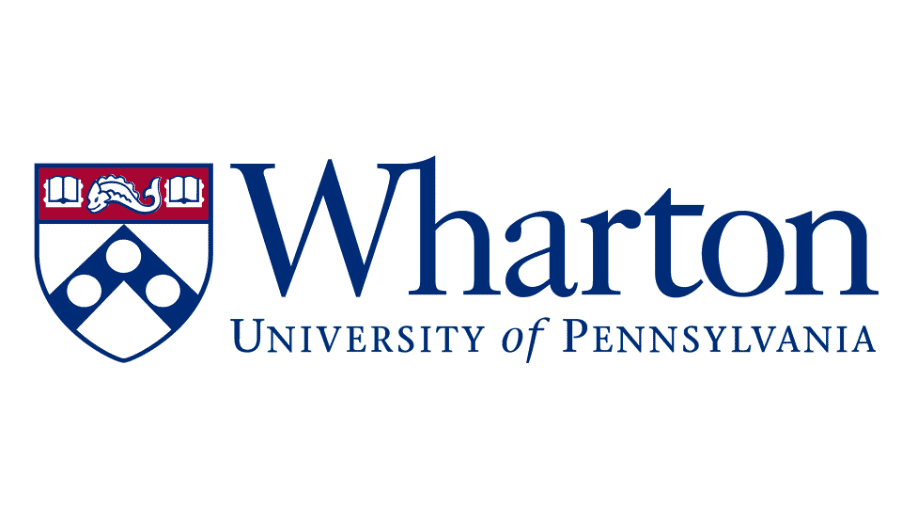The dream of earning an MBA from a top-tier place like Wharton is big. It opens doors to incredible career paths and a powerful network. However, securing a spot in such a competitive program requires a significant investment of time and money. The total cost, including tuition, living expenses, and fees, can feel like a mountain to climb.
This is where scholarships step in. They are a critical pathway to making a Wharton MBA accessible for many students. These funds come in many forms, from merit-based awards recognizing academic excellence to need-based support. Some scholarships also target specific groups or interests, helping Wharton build a diverse and talented class.
This guide will help you understand, find, and apply for Wharton MBA scholarships. It aims to empower prospective students like you to navigate the funding landscape with confidence. By the end, you will know how to boost your chances of getting financial aid.
Understanding Wharton MBA Scholarships
Getting into Wharton is a huge step. Paying for it is another. It helps to know what types of financial help Wharton offers. This section explains the different kinds of aid and what "scholarships" truly mean within the Wharton system.
Types of Financial Aid at Wharton
Wharton offers several kinds of financial aid to help students. These often include fellowships, grants, and loans. Fellowships are usually merit-based. This means Wharton awards them based on your achievements and potential. Grants can also be merit- or need-based and do not need to be repaid. Loans, on the other hand, must be paid back over time, often with interest.
Many people use the word "scholarship" generally. At Wharton, "fellowship" is the common term for their internal, merit-based scholarship awards. These financial gifts help reduce your overall cost of attendance. They let you focus more on your studies and less on money worries.
The Value of Wharton MBA Scholarships
Wharton MBA scholarships greatly cut down the cost of your degree. They can cover a part of your tuition, or even all of it. This direct financial support makes a top MBA more within reach for many students. Think about how much stress this relief provides.
Receiving a scholarship also adds prestige to your application. It shows that Wharton believes in your potential. While exact numbers change yearly, a good number of Wharton MBA students do receive some form of fellowship aid. These awards help secure your future.
Eligibility Criteria for Wharton MBA Scholarships
Wharton looks for strong candidates, both in their applications and for scholarship money. This section covers what you need to show to be considered for different scholarship chances at Wharton. Meeting these marks boosts your odds.
Academic Merit and GMAT/GRE Performance
Your academic history really matters for merit-based scholarships. This includes your college grades and previous degrees. High scores on the GMAT or GRE also play a big part. Wharton wants to see that you can handle tough coursework.
Admitted students often show very strong GMAT or GRE scores. While no single score guarantees a scholarship, strong numbers help you stand out. Your academic background shows Wharton you have the brainpower to succeed.
Professional Experience and Leadership Potential
Beyond grades, your work history is key. Wharton looks closely at your career path and how you have grown professionally. They want to see real leadership skills. This means showing how you have led projects or teams, and made a real impact.
Wharton learns about these qualities from your application essays and letters of recommendation. They also assess your leadership during interviews. Showing clear career goals helps them see your future promise.
Diversity and Background Considerations
Wharton strongly values a diverse class. Many scholarships help achieve this goal. These awards often target groups that are underrepresented. This could include students based on their gender, ethnicity, or country of origin.
Some scholarships also support those from specific socioeconomic backgrounds, or individuals who identify as LGBTQ+. Wharton’s goal is to bring together many different viewpoints. Your unique background can open doors to specific funding.
Key Wharton MBA Scholarship Opportunities
Wharton offers a range of specific scholarship programs. This section dives into some of the most well-known ones. We will look at what they focus on and how they help students.
The Wharton Fellowship Program
The Wharton Fellowship Program is the main way Wharton gives out merit-based aid. Admitted students are automatically considered for these fellowships. You do not need to fill out extra forms to apply for most of them. Wharton decides based on your entire application.
The selection process for fellowships looks at many things. They consider your academic strength, professional achievements, and leadership potential. Your overall fit with the Wharton community is also important. These fellowships are a core part of Wharton's financial aid strategy.
Named and Endowed Scholarships
Beyond the general fellowships, Wharton has many named scholarships. These are often funded by generous donors. They can support students with specific interests or backgrounds. For instance, some scholarships might be for entrepreneurs.
Others might help students who worked in non-profit roles. There are also awards for students from certain parts of the world. These named scholarships let you benefit from the generosity of Wharton alumni and friends. Each one aims to support a specific type of student.
Need-Based Financial Aid
Wharton also offers need-based financial aid. This type of aid helps students who show a financial need, not just based on merit. It works differently from merit scholarships. Need-based aid looks at your personal financial situation.
You apply for need-based help through a separate process, often by submitting financial documents. This aid can complement merit scholarships. It ensures that talented students, regardless of their financial background, can afford a Wharton MBA.
Application Strategies for Wharton MBA Scholarships
Getting scholarship money requires a smart approach. This section gives you practical advice. Follow these tips to boost your chances of securing a Wharton MBA scholarship.
Crafting a Compelling Application
Your essays are a major part of your application. Make them strong and impactful. Highlight your achievements, leadership moments, and how you fit with Wharton's values. Tailor your essays for each specific scholarship if you can. Tell your story clearly.
Actionable Tip: Focus on storytelling. Show, don't just tell, your impact. Use numbers to quantify your achievements whenever possible. For example, "I led a team that boosted sales by 15%."
An admissions officer once noted, "A strong scholarship essay connects your past successes to your future goals. It proves how you'll add to the Wharton community." This means showing not just what you've done, but what you can bring.
Leveraging Recommendations and Interviews
Choose your recommenders wisely. Pick people who know your work well and can speak to your leadership skills. They should share specific examples of your potential. Recommendations can really boost your scholarship profile.
Prepare well for your interviews. Some interviews might touch on your financial needs or your reasons for wanting a scholarship. Be ready to discuss your goals and how a Wharton MBA will help you reach them. Show your passion for the program.
Actionable Tip: Give your recommenders a clear list of your accomplishments. Remind them of specific times you showed leadership or teamwork. This helps them write a powerful letter.
External Scholarship Search and Application
Don't just look at Wharton for money. Many other organizations offer scholarships for MBA students. These can be from foundations, companies, or professional groups. Searching for outside funds is a smart move.
Actionable Tip: Use online scholarship databases. Look at sites like Fastweb or Scholarship.com. Also, check with professional groups related to your industry. Your college alumni network might also have ideas.
Financial Planning and Beyond Scholarships
Getting a scholarship is a big win. Yet, it is only one part of funding your Wharton MBA. This section talks about other financial choices and thinking long-term about your degree.
Understanding Scholarship Terms and Conditions
Always read the fine print of any scholarship offer. Understand the terms and conditions. Check if the scholarship is for one year or if it can be renewed. Find out if there are any conditions to keep it. Also, be aware of any tax rules that apply.
Knowing these details helps you plan your money. It ensures no surprises later on. A scholarship is a gift, but it often comes with clear rules.
Exploring Loan Options and Employer Sponsorship
Federal and private loans are common ways to cover remaining costs. Research different loan options to find the best fit for you. Compare interest rates and repayment plans. Loans can bridge the gap between scholarships and total costs.
Some companies also offer to help pay for an MBA. Ask your current employer about tuition reimbursement or sponsorship programs. Many businesses invest in their employees' education. One applicant, for instance, secured a major portion of their funding through their company's program, which saw the value in upskilling their talent.
The Return on Investment (ROI) of a Wharton MBA
A Wharton MBA is a big investment, even with scholarship help. But think about the long-term payoff. Graduates often see a significant jump in their career paths and earning power. Wharton's strong network and reputation open many doors.
Alumni often report high starting salaries and quick career growth after graduation. This high return on investment makes the initial cost worth it for many. A Wharton MBA is an investment in your future, paving the way for success.
Conclusion
A Wharton MBA is a significant step, but it is also very possible to attain. Scholarships play a vital role in making this dream a reality for many students. Do not let the cost stop you from applying.
It is so important to take a smart and thorough approach. Look for every funding chance you can, both within Wharton and from outside sources. Each application is a step closer to your goal.
View the scholarship application process as another chance to show off your unique skills. It is your time to prove your worth and show how you will enrich the Wharton community. Go after every opportunity available.




